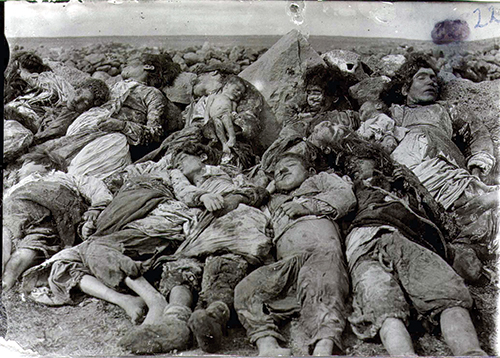
On Wednesday, millions of Armenians around the world will observe Genocide Remembrance Day, which marks the 98th anniversary of what most consider the start of the Armenian Holocaust.
The killings, which lasted in various forms until 1923, took place as the Ottoman Empire fell under the weight of an outsized war effort and years of mismanagement. While there is no official consensus, as many as 1.5 million Armenians may have been killed along with other minorities in Anatolia who were believed to be allied with Russia or other powers opposing the Ottomans in World War I.
Armenian people believe these killings were part of a calculated government policy to exterminate all Armenians.
The government of Turkey, the modern successor to the Ottoman Empire, disagrees. To them, said Birol Yesilada, a professor of political science and chair of the Turkish studies program at Portland State, the “events” (as the Turkish government refers to the violence) were part of “a response to rebellion.”
For students of Armenian heritage like Tanya Eskandari, a freshman double-majoring in business management and political science, this stance is just part of a widespread lack of recognition. Genocide Remembrance Day is an effort to combat that, she said.
“We have to remember it because it is something that is not remembered by others,” Eskandari said.
Another part of this lack of recognition is the American government’s refusal to officially use the term “genocide” for the massacres, Yesilada said. She added that though President Barack Obama said in 2007 that “America deserves a leader who speaks truthfully about the Armenian Genocide and responds forcefully to all genocides…I intend to be that president,” he has avoided the term since taking office.
While many Armenian-Americans, especially older ones, have been embittered by the president’s reluctance to follow through on his promise, most experts believe that Obama would be willing to rankle his NATO ally, Yesilada said.
“Even if he believes it, can he admit it?” she said.
Eskandari seems unfazed by the flip-flop. Obama, she said, is not the first world leader to try to distance himself from the issue. And, while the wording is important, what matters most to her is that all parties be able to move past the issue without forgetting what happened.
Pelin Basci, a Turkish language professor, agreed. Via email, Basci emphasized the reconciliation that has already taken place in Turkey.
“Whatever the politicians and authorities may or may not do, there is a lot of movement on the ground,” Basci said.
Yesilada and Eskandari agreed. In Turkey, where Yesilada has lived, there is “no ethnic tension” between ethnic Turks and Turkish-Armenians. Eskandari, meanwhile, pointed to her numerous Turkish friends as evidence that the strained relations between the Turkish and Armenian states have not trickled down to their respective diasporas. She is also part of a growing number of Armenian youth who do not see the need for financial reparations.
“It’s [about] valuing human life. It’s not something to point blame, just something to acknowledge,” Eskandari said.
Memorial services will be held at Armenian Orthodox churches around the Portland area.

